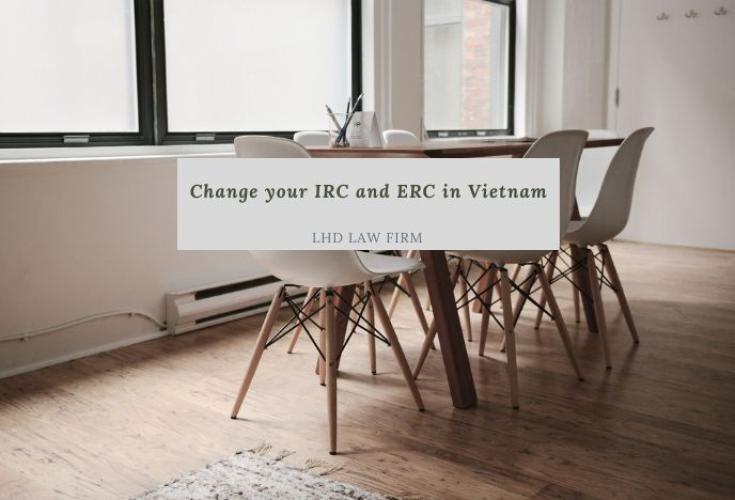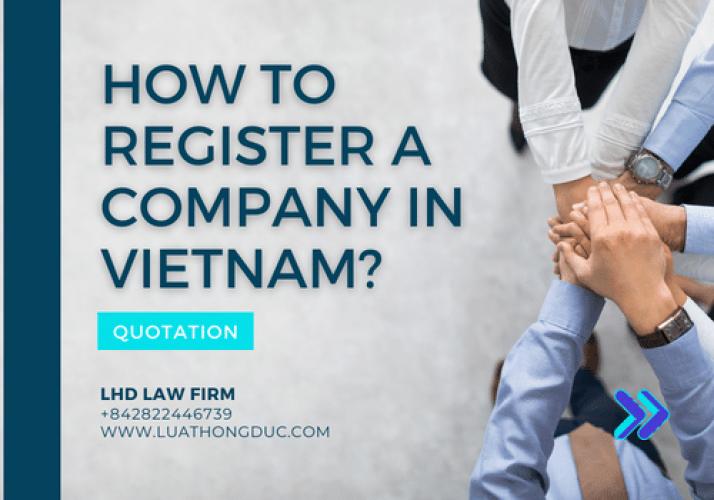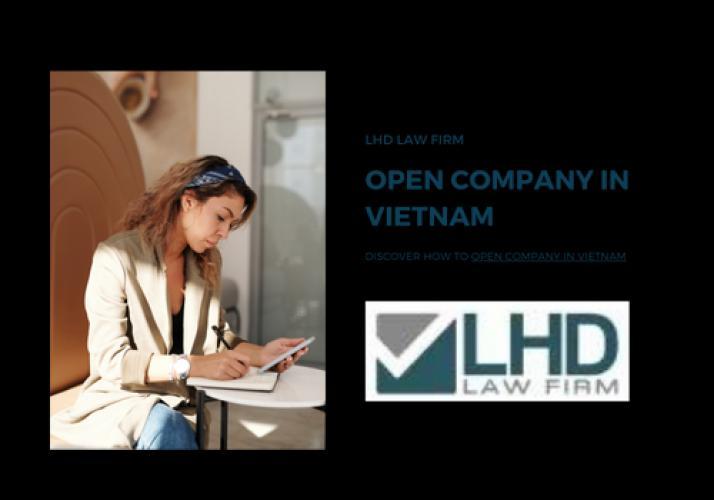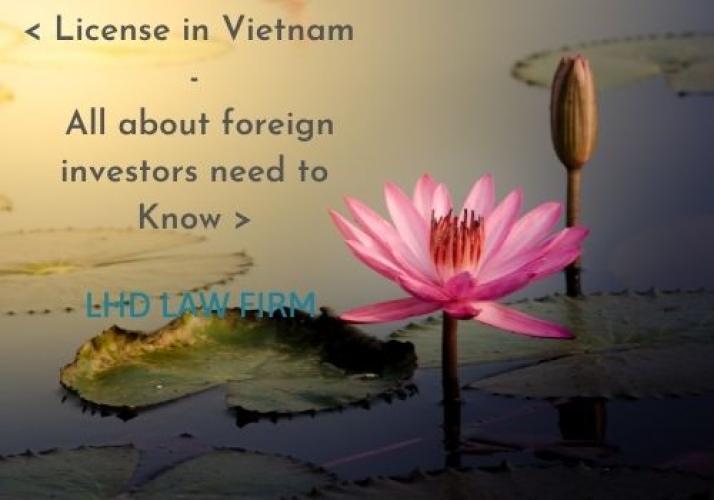Setting Up A Company In Vietnam - Legal And Practical
- 24/01/2022

 CONTENT
CONTENT
 CONTENT
CONTENT
Setting up a company in Vietnam - Legal and Practical
Vietnamese companies are similar to many other countries. Setting up a company in Vietnam with its own name, property and head office, legally registered for business. Companies with limited liability for shareholder contributions are often preferred by foreign investors.
As Vietnam's economy grows during the COVID-19 pandemic, more and more foreign investors are attracted. Vietnam's growing economy, strategic location and favorable economic conditions are factors that attract foreign investors to Vietnam. Foreign investors regularly invest in Vietnam by establishing trading companies, agents or branches. This article analyzes the legal and practical aspects of setting up a company in Vietnam.
Legal about setting up a company in Vietnam
Business law governs what happens in a business and divides it into two categories: regulating commercial law firms and regulating commercial transactions. In general, legislation has evolved and must adapt to technological and cultural changes. In the next article, three types of business law in Vietnam.
Vietnam's business law has pioneered several provisions recently to make the country competitive and attractive to foreign investors. These incentives are subject to tax law as well as company and competition law.
Vietnam's law on business establishment today has made a lot of progress
Business law in Vietnam has made a lot of progress in recent times
Since 1987, Vietnam has pursued a policy of liberalization and internationalization. Countries adopting the Doi Moi policy have implemented many legal reforms. The respective laws passed between 2010 and 2015 on investment, business, tax, real estate or employment reflect Vietnam's desire to present itself as a modern and competitive law.
Vietnamese company law is one of the branches of private law, which gathers all rights related to business activities such as corporate law, tax law, competition law, intellectual property, ... Rights This has been drastically reformed to become the law of competition and attraction.
The attraction of Vietnam's fiscal policy
Vietnam is opening its doors to foreign investment and is trying to attract as many foreign investors as possible through its fiscal policy. Tax law is one of the branches of commercial law in Vietnam. The corporate tax was reduced to 20% in January 2016, except for some specific areas; income tax is progressive and ranges from 5 to 35%; VAT is a 10% exception and tariffs have generally been reduced since Vietnam joined the WTO.
Vietnam's Enterprise Law has become more flexible
The establishment of companies by foreign investors is facilitated by the simplification of the Companies Act. This is part of the commercial law of Vietnam, in addition, the Investment and Enterprise Law of 2014 has integrated the registration process for domestic and foreign companies, now all companies must create the same profile. Register to receive the ERC "Certificate of Company Registration" or Certificate of Registration
Vietnamese law has created favorable conditions for the competitive environment among businesses
Vietnam recognizes the right to free trade and prohibits anticompetitive and unfair treatment. Vietnam's accession to the WTO in 2007 underscores the validity of this law. But still facing implementation issues. Thus, the business law of Vietnam has fully integrated into the global economy. And Vietnam is the country in Asia with the highest economic growth rate.
Vietnamese law ensures a competitive economy
Types of legal businesses in Vietnam
Private limited liability company (LLC)
A limited liability company (LLC) is a business structure in which the owners are not responsible for any of the business' obligations or liabilities. A limited liability company (LLC) is a hybrid legal entity that combines the assets of a company with only its partners or owners.
Although limited liability can be compared to corporate liability. But the tax line requirements for LLC members are partnership (not LLC) in nature.
Number of employees: A multi-person company can have only two and a maximum of 50 member companies, even if there is only one member in this type of company. Will be a sole limited company
Capital: Shares are not divided into shares. This is a donation from a member issued no later than three months after the date of issue of the Certificate of Title (ERC) by the Company, possible within 30 days of being made available to the public.
Joint-stock
A joint-stock company, sometimes called a shareholder, is a person, company or institution that owns at least a share of the capital of a company. Because shareholders are essentially the owners of a company, they profit from its success. These benefits take the form of higher stock market values or financial income paid out in the form of dividends. When a company loses money, the stock price inevitably drops, causing shareholders to lose money or see the value of their portfolios drop.
While shareholders are entitled to receive any proceeds remaining after a company liquidates its assets, creditors, bondholders, and preferred shareholders take precedence over ordinary shareholders.
General partnership in business
A partnership is a form of business in which two or more people agree to share all the assets, profits, financial and legal obligations of a jointly owned business. General partners in a partnership have unlimited liability, that is, their obligations are not limited and can be paid by seizing the owner's assets. In addition, any partner can be sued for partnership debts.
Because taxes don't flow through a general partnership, everyone is responsible for their own tax obligations, including business income, on their tax return.
Practice in setting up a company in Vietnam
Set Up a company process
The first step in starting a business in Vietnam is to obtain an Investment Certificate (IC), also known as a Business Registration Certificate. The time required to obtain an IC varies by industry and entity type, as these determine the required registration and assessment:
For projects that require registration, IC issuance takes about 15 working days.
For projects that require evaluation, the IC issuance time may vary. Projects that do not require the Prime Minister's approval take 20 to 25 working days, while projects that require the Prime Minister's approval take around 37 working days.
The process of establishing a company in practice
It is worth noting that during the IC application process, according to Vietnamese law, all documents issued by foreign governments and organizations must be notarized, consular authenticated and translated into Vietnamese. After the IC is issued, additional steps must be taken to complete the process and begin business operations.
Authorized capital
According to the definition of Vietnamese law, charter capital is "the amount of capital contributed or committed by shareholders within a certain period and stipulated in the articles of association of the company". In addition to the definition, the Vietnamese government stipulates that "the registered capital of a joint-stock company is the total face value of the number of issued shares".
Therefore, charter funds can be used as working capital to run the company. It can be combined with borrowed funds or constitute 100% of the company's total investment. Registered capital and total invested capital (including shareholder loans or third-party financing) together with the company's articles of association must be registered with the Vietnamese licensing authority. Investors may not increase or decrease the registered capital without prior approval from the local licensing body.
Dossier for setting up a company in Vietnam
Project documents for setting up a company in Vietnam should include:
-
Registration/application for issuance of investment certificates;
-
Investor Financial Capability Report;
-
draft articles of association;
-
List of company members;
-
Copies of individual membership ID cards, passports or other legal personal documents;
-
A copy of the membership organization's decision to establish, business registration certificate or other equivalent documents;
-
A copy of the authorization document, ID card, passport or other legal personal document of the authorized representative.
-
The photocopy of the business registration certificate of the foreign member organization must be certified within three months before the registration authority submits the business registration file;
-
Written authorization from the investor, if the investor is an authorized representative of the legal person certifying the organization, and a valid copy. Foreign language documents must be translated into Vietnamese, notarized and legalized;
-
Joint Venture Contract or Business Cooperation Contract (BCC);
-
Other documents required by Vietnamese law.
Some tips you need to keep in mind for setting up a company in Vietnam
-
Labor and taxes: The tax system and labor laws are the two most important things to keep in mind. Both are fairly complex. When it comes to taxation, it is influential to structure your investments from a tax planning perspective. You have to ask yourself some questions, for example, do you invest in your own name? Do you invest through a corporate structure?
Setting up a company in Vietnam requires some tips
-
Cultural awareness: If you come from an Asian country, you can understand the culture there better than Westerners. Gone are the tedious negotiations, quick signings and frantic chasing. Overall, Vietnam is a long game that requires patience first. Client meetings at karaoke bars (now gradually being replaced by beer club meetings), formal business card exchanges, contractual ways of drinking, absolute courtesy, all of these are part of getting to know you as a person. People do business with people they trust, and the expats here seem to like these practices very much, enough to maintain the local business culture.

![Setting Up Business In Vietnam [New 2024]](data/News/setup-business-in-viet-nam-5-step-guides_1703231174.jpeg)









0 comment